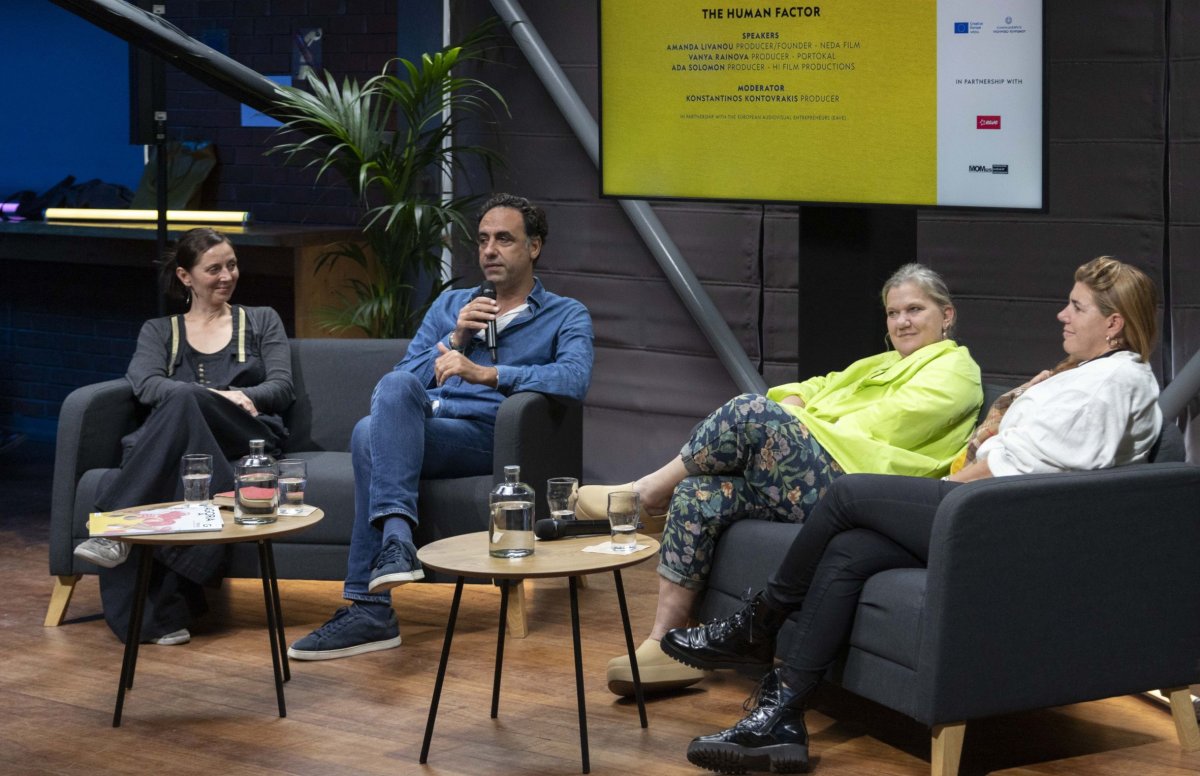Within the context of the Agora Talks of the 65th Thessaloniki Film Festival, the discussion titled “The Human Factor” was held on Tuesday November 5th at MOMus-Thessaloniki Museum of Photography, in partnership with the European Audiovisual Entrepreneurs (EAVE). The panelists were: Amanda Livanou, producer and founder of Neda Film, Vanya Rainova, producer at Portokal, and Ada Solomon, producer at Hi Film Productions. The moderator of the discussion was Konstantinos Kontovrakis, producer and SAPOE General Secretary. The panel of speakers examined the importance of the human factor in co-production procedures.
The discussion was prefaced by Thanos Stavropoulos, Agora manager and moderator of Agora talks, who thanked MOMus-Thessaloniki Museum of Photography and welcomed the speakers and the audience, among which was Tina Trapp, CEO of EAVE, who described the human factor as a crucial part of a project’s creation process. The moderator, Konstantinos Kontovrakis, made some opening remarks, noting that even though the human factor is a crucial element of the production chain, it is often overlooked. Vanya Rainova commented that at the core of each production one can always find the human factor. Projects are much more volatile than humans, and as a result humans are much more trustworthy. However, she emphasized that when the cinematic product is finally created, that dedication has to be shifted to the movie. She also underlined the importance of a close cooperation with the directors, in order to forge a common vision.
Then, Ada Solomon took the floor, adding that she always counts on the creators, while expressing her concerns about the relationship between directors and producers. She made a reference to the only time in her career when she allowed herself to show signs of anxiety or fear as a producer, while teaming up with her husband, who was extremely supportive. She also mentioned her fruitful cooperation with the Romanian film director Radu Jude, and emphasized how important it is to show empathy and to handle matters in a diplomatic manner, both as a director and as a producer.
At this point, the panel examined gender issues while in production and the possible power dynamics that emerge. Regarding the management of human relationships during challenging stages in the production chain, Amanda Livanou commented that it is important for all aspirations and possible clashes to surface from both sides, and that each side should support its argument. She added that a turning point always shows itself at some point in every production, which is usually related to a lack of time or funds and it requires compassion and professionalism. She concluded by emphasizing how important solidarity is, both in professional and interpersonal relationships.















